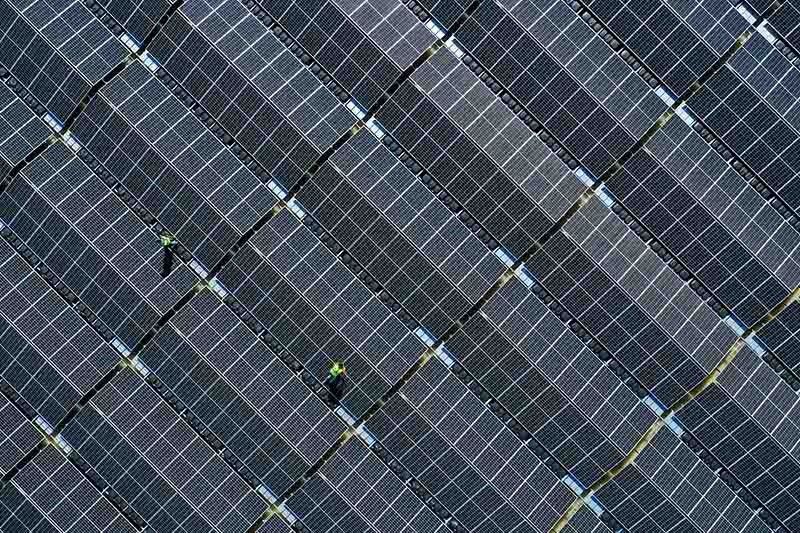UN urges 'complete transformation' of global energy system

GENEVA, SWITZERLAND — The world needs to double the supply of electricity from renewables by 2030 to avoid climate change undermining global energy security, the United Nations said on Tuesday.
Not only is the energy sector a major source of the carbon emissions that drive climate change, it is also increasingly vulnerable to the shifts that come with a heating planet, the UN's World Meteorological Organization stressed.
In its State of Climate Services annual report, the WMO warned that increasingly intense extreme weather events, droughts, floods and sea-level rise—all linked to climate change—were already making energy supply less reliable.
It pointed, for instance, to a historic heatwave that caused the massive power outages in Buenos Aires in January.
In 2020, a massive 87% of global electricity generated by thermal, nuclear and hydroelectric power plants directly depended on having freshwater for cooling, the WMO said.
But a third of power plants running on fossil fuels are in areas of high water stress, as are 15 percent of existing nuclear power plants—a share expected to swell to 25% in the next 20 years.
Eleven percent of hydroelectric dams are also located in highly water-stressed areas, while more than a quarter of existing hydropower schemes and nearly as many planned ones are in river basins that currently struggle with medium to high water scarcity, the WMO said.
Nuclear power plants, it added, are also often located in low-lying coastal areas, leaving them potentially vulnerable to sea-level rise and flooding.
"Time is not on our side and our climate is changing before our eyes," WMO Secretary-General Petteri Taalas stressed.
"We need a complete transformation of the global energy system."
Part of the problem
Taalas pointed out that the energy sector ias itself a part of the problem since is the source of around three quarters of global greenhouse gas emissions that are changing the climate.
"Switching to clean forms of energy generation... and improving energy efficiency is vital," he said.
But he cautioned that reaching net-zero emissions by 2050 would only be possible "if we double the supply of low-emissions electricity within the next eight years".
Net-zero, or carbon neutrality, means carbon dioxide emitted by human activities are balanced globally by CO2 removed from the atmosphere over a specified period.
The WMO report stressed the growing importance of access to reliable weather, water and climate services to ensure power infrastructure was resilient and to meet rising energy demand.
The report, which WMO drafts with input from more than two dozen organisations, said shifting to renewable energy would help alleviate growing global water stress, pointing out that the amount of water used by solar and wind is much lower than for traditional power plants.
Invest in Africa
But it warned that the current pledges by countries to cut carbon emissions "fall well short" of what is needed to meet the objectives set by the 2015 Paris Agreement on climate change.
The report said global investments in renewable energy "need to triple by 2050 to put the world on a net-zero trajectory".
It called in particular for more clean energy investments in Africa.
The continent, which is already facing massive droughts and other severe effects from climate change, has seen only two percent of clean energy investment in the past two decades.
And yet with 60 percent of the best solar resources on the planet, it has the potential to become a major player in solar energy production, the report said.
However, significant investments are required.
"Bringing access to modern energy for all Africans calls for an investment of $25 billion annually," the report said.
That is the equivalent of around one percent of global energy investment today.
- Latest






























